BINH DINH Below the Yuuki Farm organic vegetable farm is the La Di riverbed - a branch of the Kon Bac river. The vicissitudes of time have turned this place into a fertile land...
Good vegetables on good soil
Kon River - the largest river in Binh Dinh flows from the upstream to Nhon Phuc commune (An Nhon town) and divides into 2 branches: The branch flowing to the southeast is called the Nam branch, the branch flowing to the northeast is called the Bac branch.
When building the Yuuki Farm organic vegetable farm in Thiet Tru village, Nhon Hau commune (An Nhon town, Binh Dinh), Mr. Trinh Hung Cong was told by the elders here that this land used to be the bed of La Di river - a branch of Thi Lua river belonging to the Northern branch of Kon river.
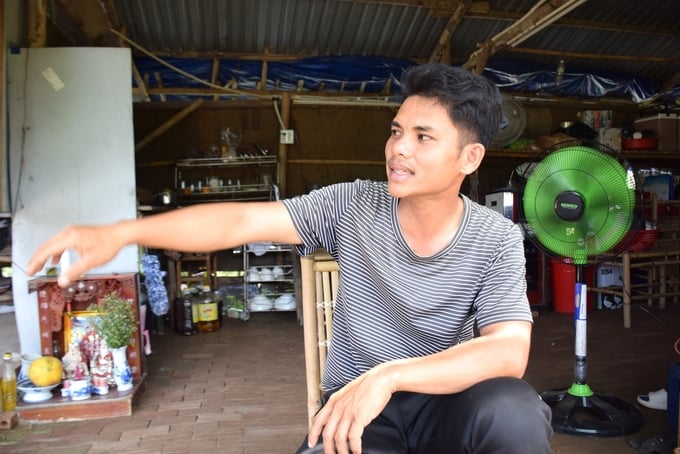
Mr. Trinh Hung Cong enthusiastically talks about growing organic vegetables. Photo: V.D.T.
Nhon Hau commune is known as the "land of two kings" because in the past, this place was the site of Do Ban citadel - the capital of the Champa Kingdom and later the Hoang De citadel - the capital of the Central Government of Emperor Thai Duc - Nguyen Nhac. At that time, La Di river was considered the dragon vein of the king's land, because this river flowed around the capitals of the two dynasties mentioned above. After many ups and downs, La Di river was silted up and now becomes a fertile agricultural land located next to the Kon Bac branch of the river called Thi Lua river.
After many years of studying and working on a farm specializing in producing organic vegetables in Japan, returning to his hometown, Mr. Trinh Hung Cong started his business growing organic vegetables, his farm was named Yuuki Farm. The first place Mr. Cong started his business was the old dragon vein land, located in Thiet Tru village (Nhon Hau commune) with an area of 1.6 hectares. Currently, this land is used by Mr. Cong as a farm with a model of growing 36 types of vegetables and fruits, each type is grown in small amounts. The farm is used to test new varieties, test processes, and is a place for students to visit and experience; to test organic fertilizers and pesticides, and to process vegetables and fruits before bringing them to market.
In addition, Mr. Cong currently owns 3 other organic vegetable farms, 1 in Thiet Tru Bac village (Nhon Hau commune) with an area of 1ha, 1 in Dai Hoa village (Nhon Hau commune) with an area of nearly 2ha and 1 in Thiet Trang village (Nhon My commune) with an area of 1.8ha. The 3 farms mentioned above specialize in commercial production of vegetables and fruits that have been tested from the main farm. The total area of Yuuki Farm currently growing organic vegetables has increased to 6.4ha, all located along the Kon Bac branch of the river.
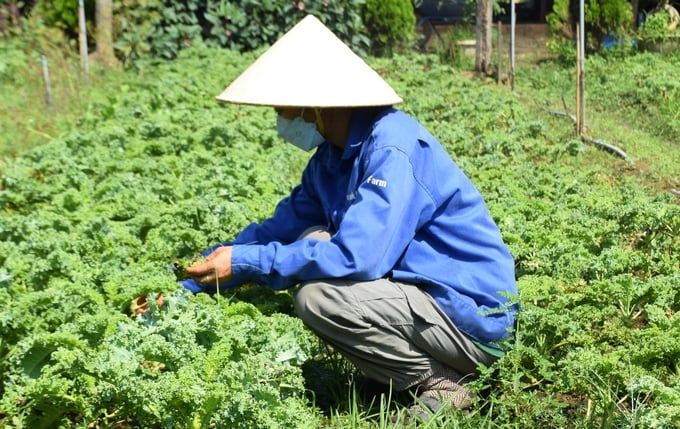
Young agricultural engineer Ha Thi Thu Thao examines plants every day to “diagnose diseases” and add nutrients to them. Photo: V.D.T.
“Currently, Yuuki Farm supplies the market with 50-100kg of various vegetables and fruits every day, mainly to customers in the North and the South. Our customers in the North have only 2 large agents, making 3 shipments per week. In the South, there are 32 organic vegetable stores that are our loyal customers, and these 32 stores regularly receive goods every day. In addition, Yuuki Farm also supplies products to 3 kindergartens and many organic vegetable stores in Quy Nhon City,” said Mr. Trinh Hung Cong.
The alluvial soil is already rich in nutrients, in addition, around Mr. Cong's farms is a laterite mine. The laterite mine filters the groundwater so the water here is not contaminated with alum or salt, thanks to which the quality of the crops in this area is much different from other places.
“Fuuki Farm products are very popular with consumers. For example, watermelon. With favorable soil conditions, Yuuki Farm's organic watermelon is rated by Southern consumers as more delicious than Long An watermelon. Comparing Yuuki Farm's watermelon with watermelon grown in Long An, the two watermelons are the same size, but our watermelon is heavier than Long An watermelon thanks to the connection of the watermelon pulp. Currently, during the dry season, Yuuki Farm produces 10 - 12 tons of watermelon per month. Our watermelons sold in Hanoi market cost 60,000 - 65,000 VND/kg, no matter how much we sell, we sell out”, Mr. Trinh Hung Cong shared.
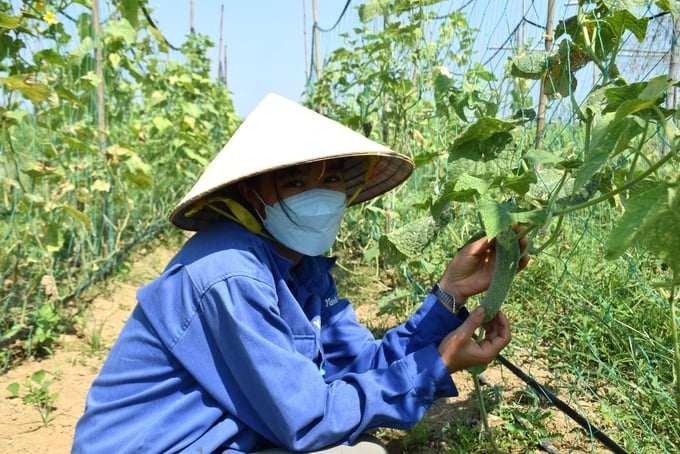
Fragrant sticky rice melon, a very popular crop of Yuuki Farm at present. Photo: V.D.T.
What nutrients do plants lack? Supplement those nutrients.
Yuuki Farm's 4 vegetable farms currently employ 22 workers. The main farm alone has 13 workers, including 5 technical workers with university degrees, typically young agricultural engineer Ha Thi Thanh Thao. Thao graduated from Ho Chi Minh City University of Agriculture and Forestry in 2022. Right after graduation, Thao immediately joined Yuuki Farm, in charge of fertilizer and pesticides.
According to Thao, all 6.4 hectares of vegetables and fruits of Yuuki Farm, if infected with pests, will be treated with “traditional medicine” which is biological products extracted by the farm itself, and the soil will be supplemented with nutrients using organic fertilizer. All vegetables and fruits grown by Yuuki Farm are prevented and treated with biological products extracted from herbs such as ginger, garlic, lemongrass, chili, custard apple seeds, neem bark and leaves, coconut residue, tobacco plants, etc.
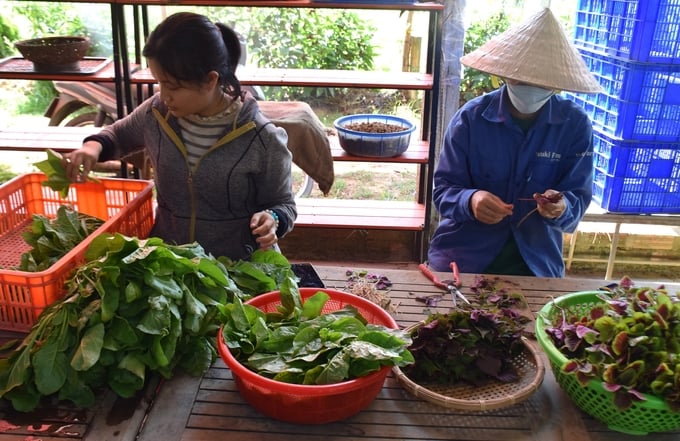
Before packaging, Yuuki Farm's vegetables are cut and washed by workers. Photo: V.D.T.
“The above herbs are dried, ground and then incubated with probiotics. This preparation can control pests such as worms, thrips, and red spiders. Growing organic vegetables is mainly about preventing pests and diseases. You have to know at what stage the vegetable plants will develop which pests and diseases, and spray the biological preparation that is the nemesis of those pests and diseases every week to protect the vegetable plants,” said engineer Ha Thi Thanh Thao.
The story of Fuuki Farm's fertilizer sounds quite elaborate. Currently, Yuuki Farm is collaborating with VietFarm to build a process of making chicken manure pellets as the main source of nutrition for vegetable plants. The process of producing chicken manure pellets is very strict. Chicken manure is processed through 3 layers of burning to remove heavy metals and worms, if any remaining, then nutrients are sprayed. Nutrients are extracted from liquids and enzymes to moisten the chicken manure before being compressed and packaged.
“I understand the nutritional needs of the plants and order VietFarm to follow that process. On average, a batch of VietFarm fertilizer produces 100 - 300 tons. Because the process Yuuki Farm orders is very different, the nutrient spraying regime is also different, so it cannot be sold to the mass market. Therefore, when Yuuki Farm orders, it must buy the whole batch, and if it is not used up, it is divided among the associated farms,” said Mr. Trinh Hung Cong.
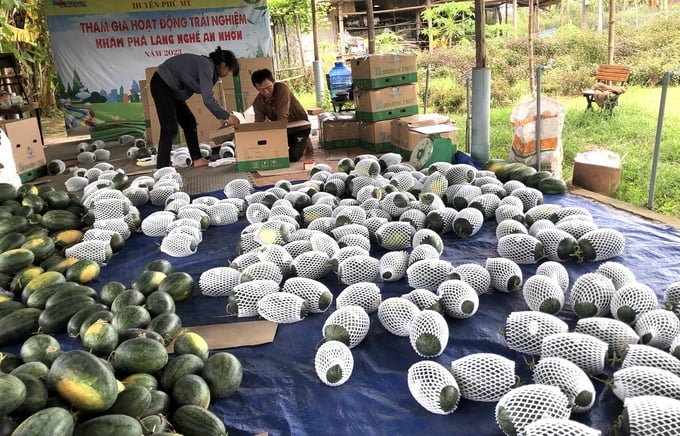
Yuuki Farm workers pack watermelons for sale. Photo: V.D.T.
To "nourish" plants, Yuuki Farm also uses soybean residue, bananas, chicken feather juice, chicken eggs, milk... composted with molasses and probiotics to provide macronutrients, medium and micronutrients for plants.
According to Ms. Ha Thi Thanh Thao, the care process depends on the different nutritional needs of each type of plant. For example, kale, during the growth process of 4 - 6 months, this plant will need to be supplemented with half a kilo of chicken manure pellets/1m2 of land, or 1.5 - 2kg of chicken manure treated with microorganisms or 4kg of cow manure. However, it is not possible to add all the above amount of fertilizer to an area of 1m2 of land at once because it will be wasteful and cause nutritional poisoning of the plant, but it needs to be fertilized according to the essential needs at each specific time with a specific dosage.
Growing organic vegetables is like "hypnotizing" the two "teacher and student" Trinh Hung Cong and Ha Thi Thu Thao. "The health of the plant is shown through the green color of the leaves. If there is a lack of macronutrients, the leaves will turn yellow from the tip of the leaf inward; if there is a lack of medium nutrients such as sulfur, calcium, magnesium, the leaves will turn yellow from the inside out; if there is a lack of micronutrients, the leaves will have yellow spots.
“If a vegetable plant lacks iron or copper, its leaf veins will turn silver instead of green; if it lacks zinc, its leaf veins will remain green, but from the leaf veins outwards, there will be yellow spots. Based on these phenomena, I use the required amount of nutrients according to the formula to fertilize the plants,” Trinh Hung Cong explained.
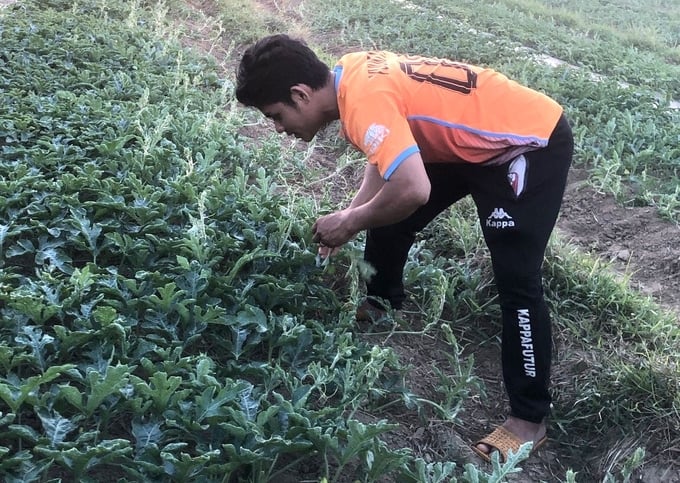
Mr. Trinh Hung Cong visited Yuuki Farm's watermelon field. Photo: V.D.T.
“The cost of organic farming is 70% lower than the cost of using inorganic fertilizers. Rural farmers have abundant input materials such as ripe bananas, papayas or spoiled fruits that are sold cheaply by traders. Producing 1 liter of biological products costs about 10,000 VND, while 1 liter can irrigate 300 - 500m2 of crops. Input costs have been reduced and crops are less susceptible to diseases, so of course growers will have high profits,” said Ms. Ha Thi Thanh Thao.
Source


![[Photo] Overcoming all difficulties, speeding up construction progress of Hoa Binh Hydropower Plant Expansion Project](https://vstatic.vietnam.vn/vietnam/resource/IMAGE/2025/4/12/bff04b551e98484c84d74c8faa3526e0)





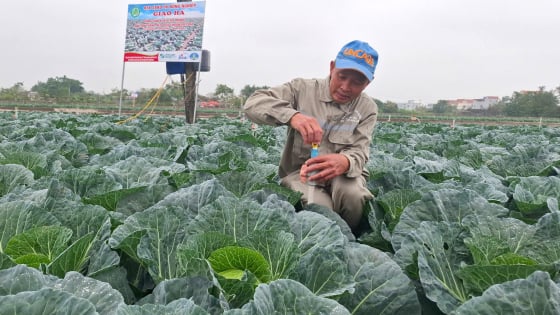
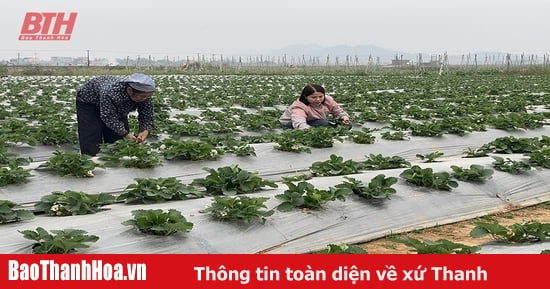

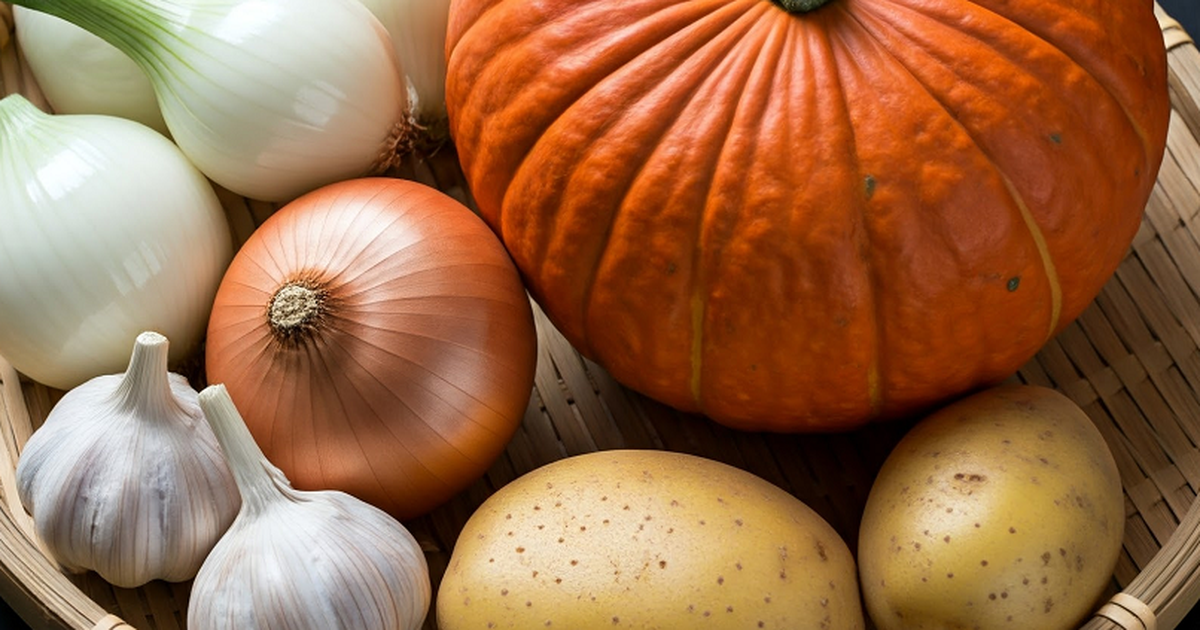

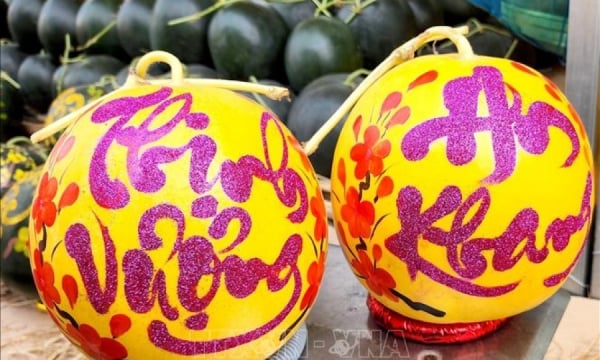
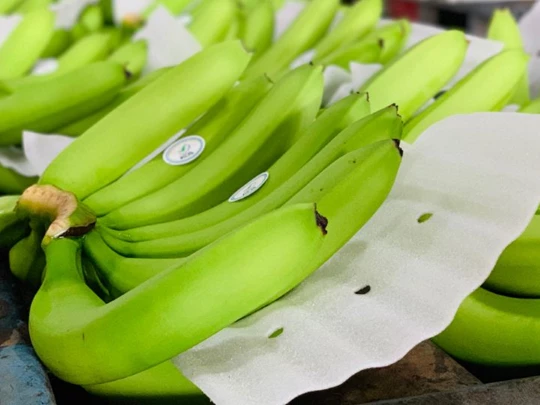

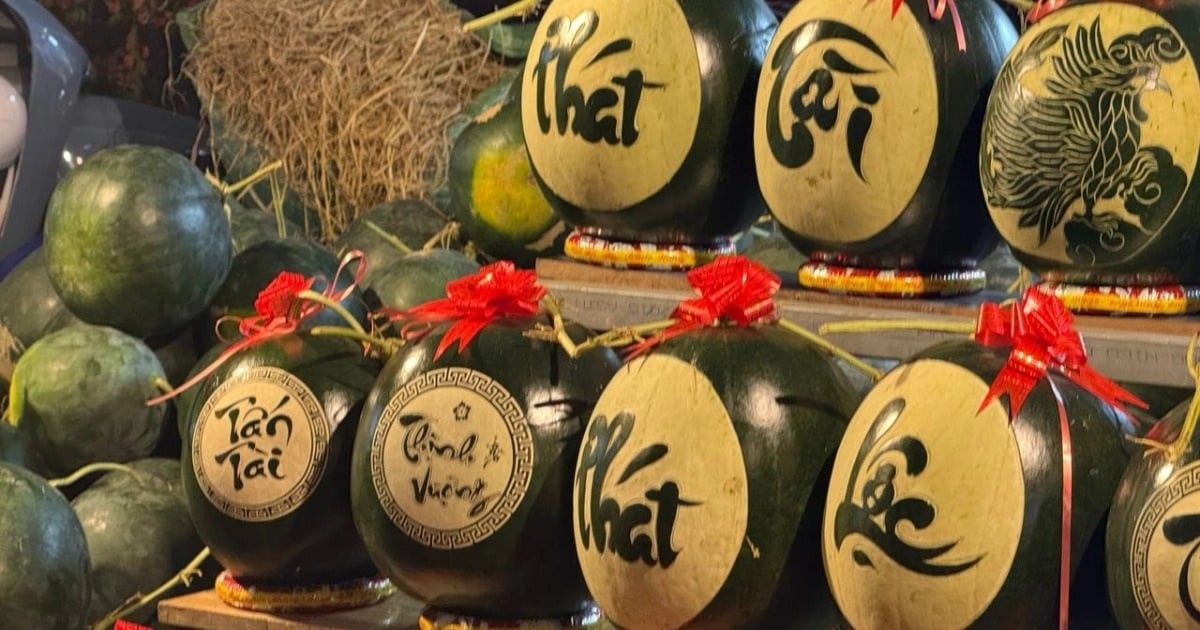


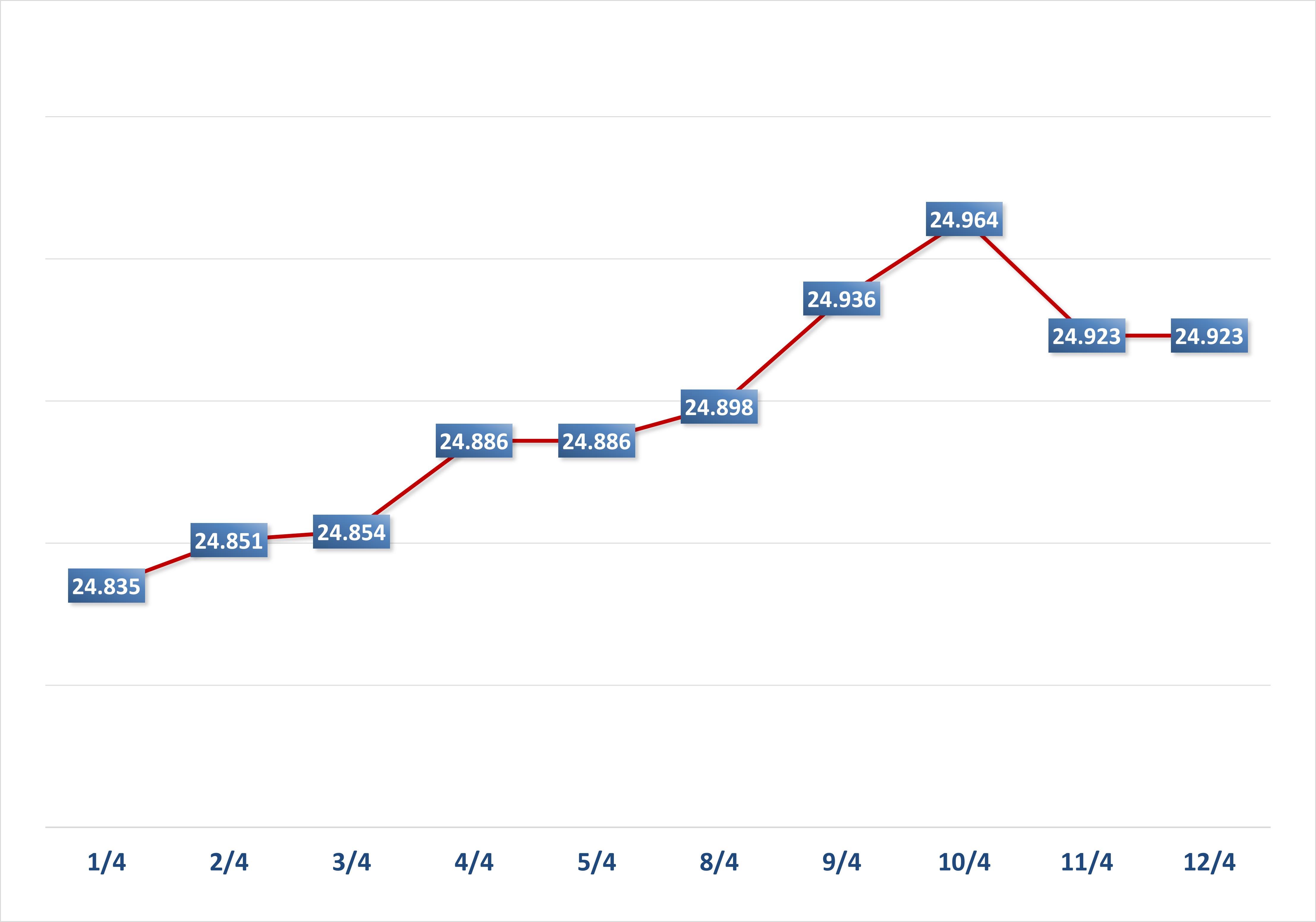
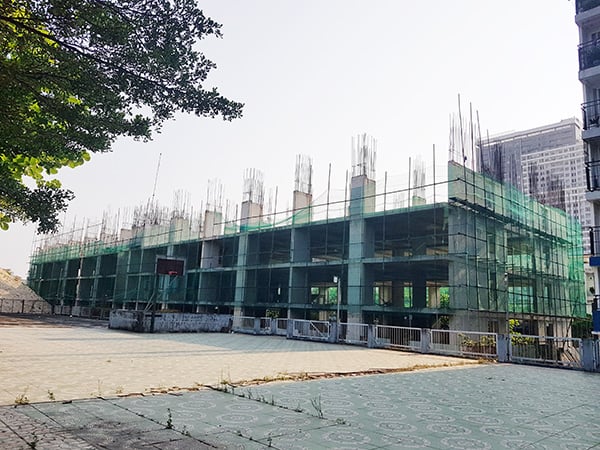

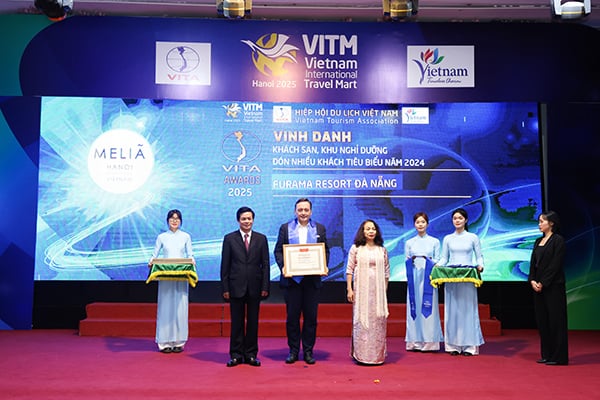



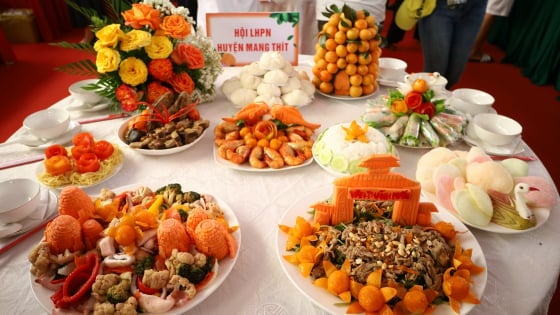
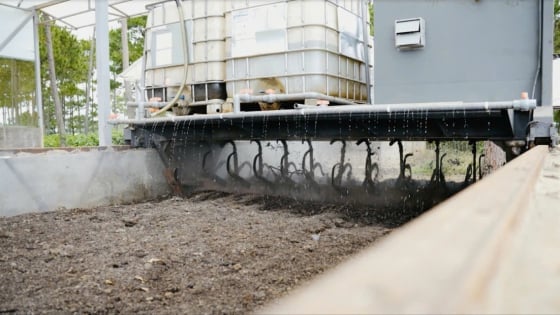
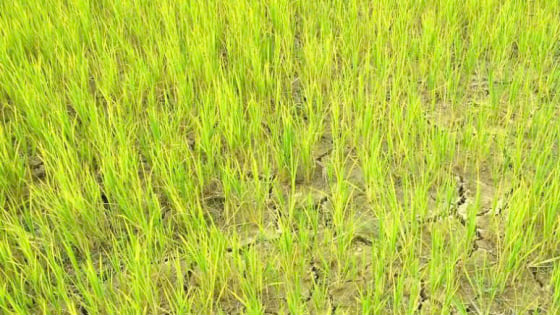

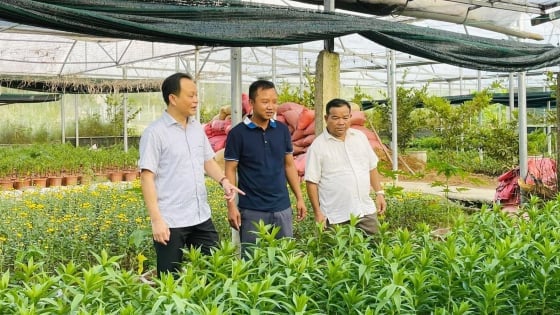
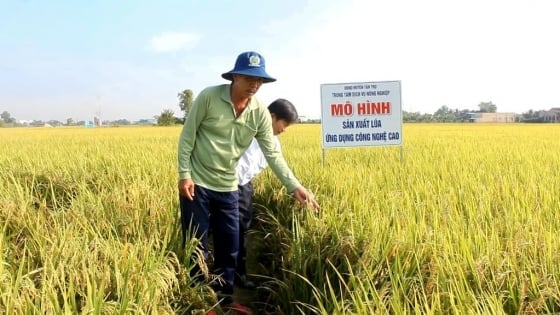












































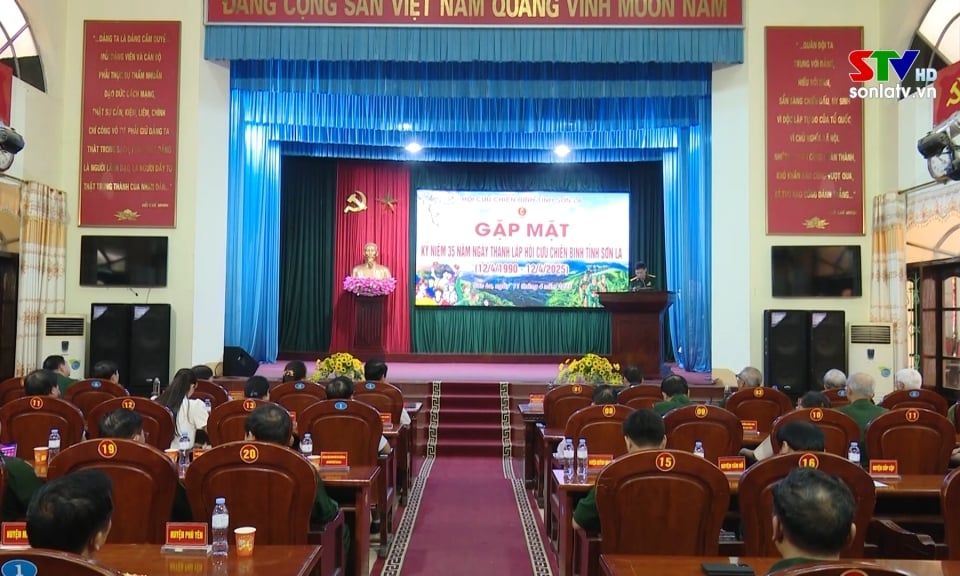




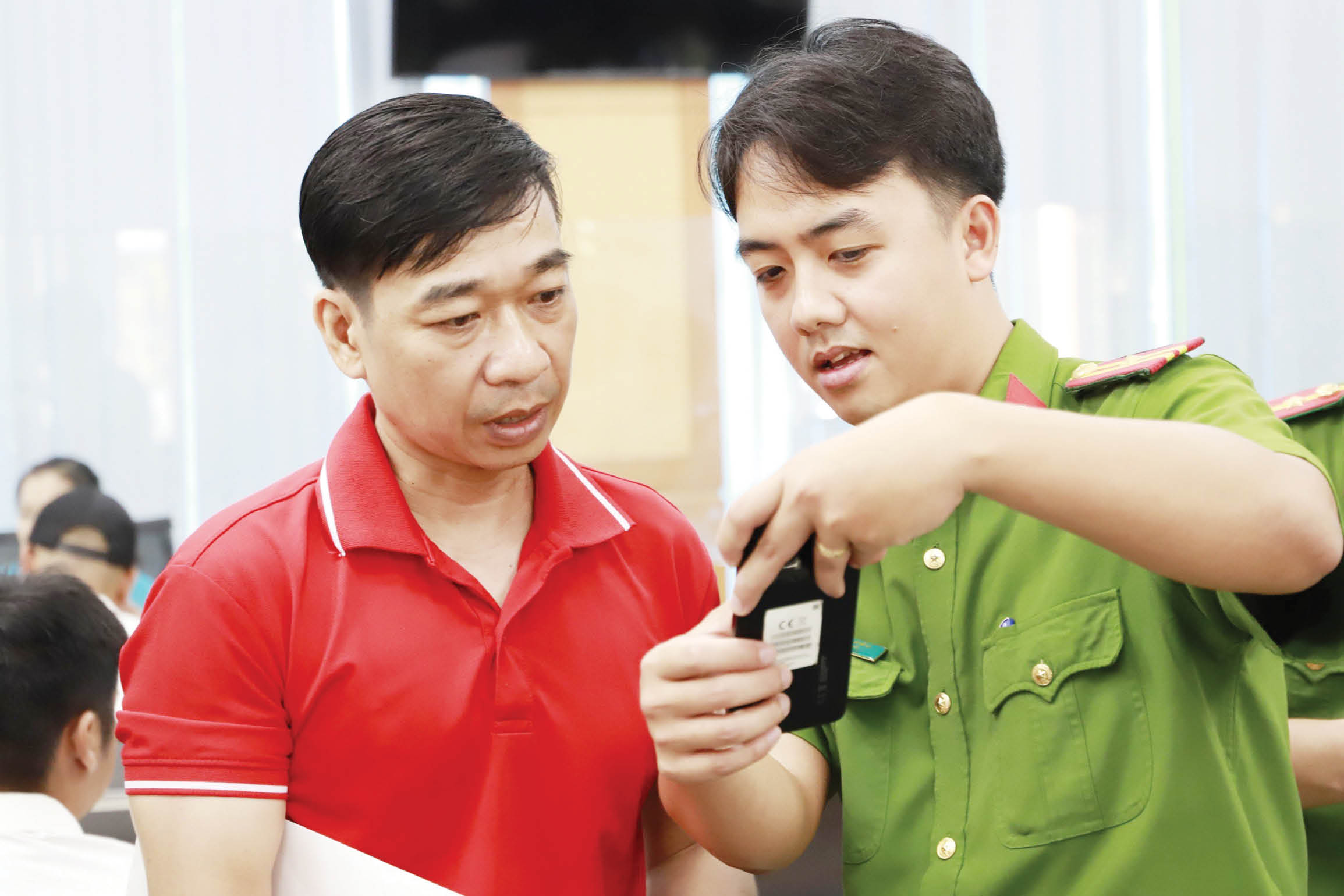
















Comment (0)